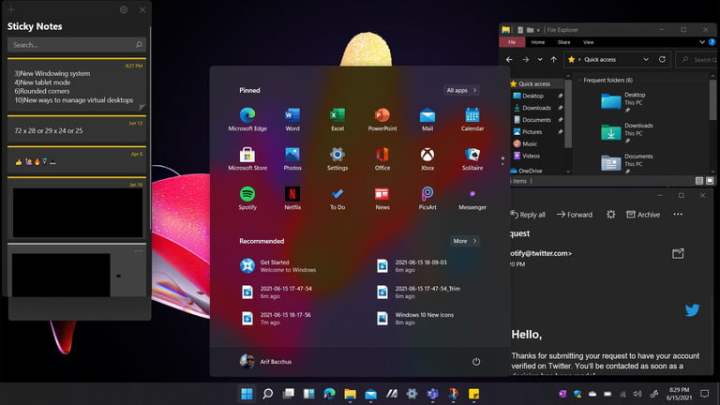
Rumors are running wild after the recent Windows 11 leak. A near-final version of the upcoming operating system has been made public, revealing some exciting new futures. As the leaked ISO continues being tested, more information emerges, including hints that Microsoft might be preparing Windows 11 for Intel’s Alder Lake and Lakefield hybrid processors.
Intel Alder Lake, as the successor to Intel’s Lakefield hybrid CPUs, is said to also utilize the same big.LITTLE architecture. What this means is that it will feature a mix of cores, some optimized for high performance, and some for high efficiency. This is a technology already utilized in some mobile devices, but it will likely hit a wider PC-related market with the release of Alder Lake.
Many Windows users have long been wondering whether the new operating system would be optimized for the upcoming 12th Gen Intel Core Alder Lake processors. To find out more, testers ran benchmarks on what is currently Intel’s only hybrid CPU series — the Intel Core Lakefield. A deeper dive into Windows 11 leaves no doubt — the operating system already includes some tweaks made specifically for hybrid Intel CPUs.

Based on tests performed on a Lakefield Core i7-L16G7 processor, it seems that Lakefield CPUs will, in fact, receive a boost from upgrading to Windows 11. Using
Lakefield processors are fairly low in power. While Alder Lake is rumored to bring a significant increase in the number of cores, Lakefield CPUs aren’t that impressive. They feature just one big and four smaller cores. However, the architecture of both these series of processors is likely to be similar, which is why this bodes well for Alder Lake.
Windows 11 is said to bring some exciting new features, including a completely revamped start menu, a Windows dark mode, multitasking improvements, and WDDM (Windows Display Driver Model) 3.0 support. First rumored to be an update to Windows 10, everything now points to
The fact that Microsoft is optimizing for hybrids shows that future Intel Alder Lake users can expect Windows 11 to support that architecture. With Alder Lake set to hit the market this fall, it’s possible that Microsoft may be gearing up to meet the release with some news of its own. We are likely to find out more during the upcoming “what’s next for Windows” event on Thursday, June 24.
Editors' Recommendations
- Windows 11 might nag you about AI requirements soon
- You’re going to hate the latest change to Windows 11
- Windows 11 tips and tricks: 8 hidden settings you need to try
- Windows 11 vs. Windows 10: finally time to upgrade?
- Beware! The latest Windows 11 update might crash your PC




